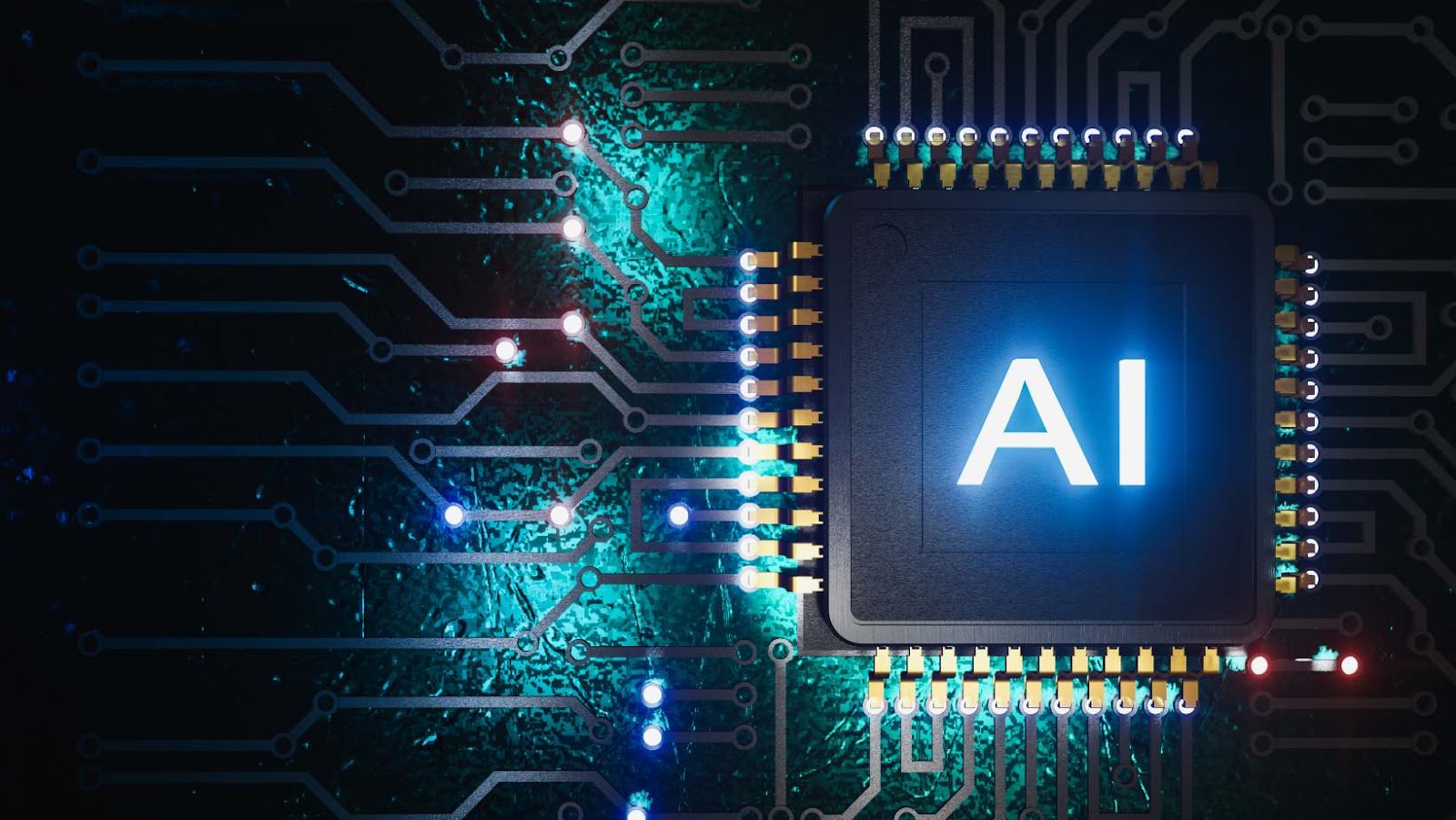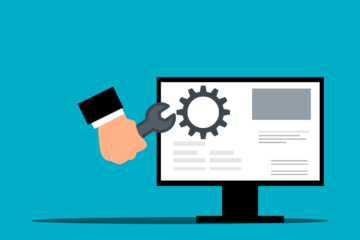The software development industry is drastically transforming due to the rapid advancements in Artificial Intelligence (AI). This technology is enhancing software developers’ capabilities and revolutionizing how software is designed, developed, tested, and maintained. An in-depth look at the benefits, applications, and future prospects of artificial intelligence software development is presented here.

How will AI Affect Software Engineers?
1. AI-Powered Development Tools:
One of the most significant impacts of AI on software development is the advent of AI-powered development tools. These tools leverage machine learning algorithms to assist developers in writing code more efficiently and accurately.
- Automated Code Generation: AI tools can generate code automatically based on given parameters and requirements. This capability reduces the time developers spend on routine coding tasks and allows them to focus on more complex aspects of software design and architecture.
For instance, tools like OpenAI’s Codex can interpret natural language instructions and convert them into executable code, significantly speeding up the development process.
According to a report by MarketsandMarkets, the AI in software development market size was valued at USD 150.2 billion in 2023 and is expected to grow at a CAGR of 36.8% from 2023 to 2030. The revenue forecast for 2030 is projected to reach USD 1,345.2 billion.
- Intelligent Code Completion: Integrated Development Environments (IDEs) like Visual Studio Code and IntelliJ IDEA are incorporating AI-based code completion features. These tools predict the next segment of code a developer is likely to write, offering suggestions that improve coding speed and reduce errors.
By analyzing vast amounts of code, these AI systems learn common patterns and best practices, making them invaluable for enhancing productivity.
2. AI in Software Testing:
Software testing is a critical phase in the development lifecycle, ensuring that applications function correctly and meet specified requirements. AI is revolutionizing this aspect by introducing smart testing frameworks and tools.
- Automated Testing: AI-driven tools can automate repetitive testing tasks, such as unit tests, integration tests, and regression tests. By automating these processes, developers can ensure more thorough and consistent testing coverage, identifying and addressing issues faster than traditional methods allow. Tools like Testim and Applitools utilize AI to create and execute tests, adapting to changes in the codebase dynamically.
- Predictive Analytics for Bug Detection: AI can analyze historical data to predict potential bug occurrences and their impact on the software. This predictive capability helps developers prioritize testing efforts and focus on areas that are most likely to cause problems, improving overall software quality and reliability.

3. Enhancing Software Maintenance with AI:
Maintenance is an ongoing necessity for any software application, involving updates, bug fixes, and performance improvements. AI is making significant progress in this area by enabling proactive maintenance and self-healing systems.
- Proactive Maintenance: AI systems can monitor software performance in real-time, identifying potential issues before they escalate into critical problems. By analyzing usage patterns and performance metrics, these systems can predict when maintenance is required, allowing developers to address issues proactively and minimize downtime.
- Self-Healing Systems: The concept of self-healing software is becoming a reality with AI. These systems can automatically detect, diagnose, and fix issues without human intervention. By leveraging machine learning algorithms, self-healing systems learn from past incidents and continuously improve their problem-solving capabilities, ensuring high availability and resilience.
Tip: To harness the transformative power of Artificial Intelligence (AI) in your software development projects across any industry—be it hospitality, education, manufacturing, or beyond—contact App-Scoop. As the best AI development company renowned in Canada and the USA, we specialize in delivering custom AI development services designed to meet your business needs.
Our team of expert AI developers is dedicated to helping you harness the full potential of AI, from automated code generation to intelligent project management. Partner with us to ensure your software development is at the forefront of innovation and efficiency.
4. AI and Software Security:
Security is a paramount concern in software development, and AI is playing a crucial role in enhancing software security measures.
- Threat Detection and Response: AI-powered security tools can detect and respond to threats more effectively than traditional methods. By analyzing vast amounts of data from various sources, these tools can identify unusual patterns and behaviors indicative of a security breach.
AI systems like Darktrace use machine learning to autonomously respond to threats, isolating compromised systems and mitigating potential damage.
- Vulnerability Assessment: AI can assist in identifying vulnerabilities in the codebase by scanning and analyzing code for known security issues. This automated assessment helps developers patch vulnerabilities early in the development cycle, reducing the risk of exploitation.
According to IBM’s report on The Cost of a Data Breach 2023 global survey, extensive use of artificial intelligence (AI) and automation saved organizations nearly USD 1.8 million in data breach costs and accelerated the detection of data breaches.
Related Articles:
- AI in Healthcare: Opportunities and Challenges
- Using AI to Improve Electronic Health Records
- Wearables and AI
5. AI-Driven Project Management:
The use of AI in project management is another area where it has made a significant impact. By leveraging AI, project managers can improve planning, resource allocation, and overall project execution.
- Predictive Analytics for Project Planning: AI tools can analyze historical project data to provide predictive insights for future projects. These insights help in estimating timelines, resource requirements, and potential risks, enabling project managers to make more informed decisions and plan projects more effectively.
- Resource Optimization: AI algorithms can optimize the allocation of resources by analyzing the skills and availability of team members. This optimization ensures that the right people are assigned to the right tasks, improving efficiency and productivity.

Future of AI in Software Development
The future of AI for software development is incredibly promising, with ongoing advancements poised to further transform the industry.
1. AI-Enhanced Creativity:
AI is expected to enhance creativity in software development by providing innovative solutions and ideas that developers might not consider. By analyzing vast amounts of data and identifying trends, AI can suggest new features, improvements, and design patterns, leading to a more creative development environment.
2. Ethical Considerations:
AI will continue to evolve in a way that will make ethical considerations increasingly important. Developers must ensure that AI systems are designed and implemented responsibly, with a focus on transparency, fairness, and accountability. Addressing these ethical challenges will be crucial in building trust and ensuring the positive impact of AI on society.
3. Continuous Learning and Adaptation:
AI systems will continue to learn and adapt, becoming more sophisticated and effective over time. This continuous improvement will enable AI to handle increasingly complex tasks, further integrating into the software development process and driving innovation.
AI is fundamentally changing the software development industry, offering numerous benefits and opportunities for improvement. From automated code generation to intelligent project management, AI is enhancing every aspect of the development lifecycle.
As we look to the future, it is clear that AI will continue to play a pivotal role in shaping the software development landscape, driving efficiency, innovation, and quality.
Frequently Asked Questions
How is AI transforming the software development industry?
AI is revolutionizing software development by automating routine tasks, improving code quality, and speeding up the development process. It assists in bug detection, code generation, testing, and predictive analysis, allowing developers to focus on more complex tasks
What are some AI tools used in software development?
Some popular AI tools in software development include GitHub Copilot for code suggestions, DeepCode for code review and bug detection, and Tabnine for AI-driven autocompletion. These tools enhance productivity and help developers write better code faster.
How does AI assist in automating testing in software development?
AI can automate various testing phases, including functional, regression, and performance testing. AI-driven tools analyze previous test results to predict potential issues, helping developers catch bugs earlier and ensuring higher software quality with minimal manual intervention.
Can AI help improve the quality of code?
Yes, AI tools can analyze code for errors, inefficiencies, and vulnerabilities, suggesting improvements and ensuring code adheres to best practices. They can also optimize the codebase by identifying redundant or unnecessary lines of code.
What role does AI play in code generation?
AI-powered code generation tools, like OpenAI’s Codex, assist developers by suggesting entire code snippets based on brief prompts or context. This speeds up development and helps developers focus on higher-level problem-solving instead of manually writing repetitive code.
How does AI improve software project management?
AI can help predict project timelines, resource allocation, and identify potential risks by analyzing historical data from past projects. It aids in more accurate planning, monitoring progress, and ensures that teams stay on track with their goals.
What are the benefits of AI in bug detection and debugging?
AI can automatically detect bugs and vulnerabilities by analyzing large amounts of code, identifying patterns of issues that are commonly overlooked by developers. It helps save time in identifying the root cause of problems and improves the overall quality of the software.
Can AI help in software maintenance and updates?
AI assists in software maintenance by identifying outdated components or code that need updating. It can also predict which parts of the software might need attention based on usage patterns, helping developers prioritize their work more effectively.
How is AI affecting the role of software developers?
AI is shifting the role of developers from manual coding to more strategic tasks, like designing algorithms, managing AI systems, and solving complex problems. Developers can rely on AI for mundane tasks like code suggestions and testing, allowing them to focus on higher-value activities.
What challenges come with integrating AI in software development?
Challenges include the need for skilled developers to work with AI tools, the potential for bias in AI algorithms, and ensuring the tools are reliable and accurate. Additionally, businesses must invest in training and infrastructure to integrate AI effectively into their development processes.



